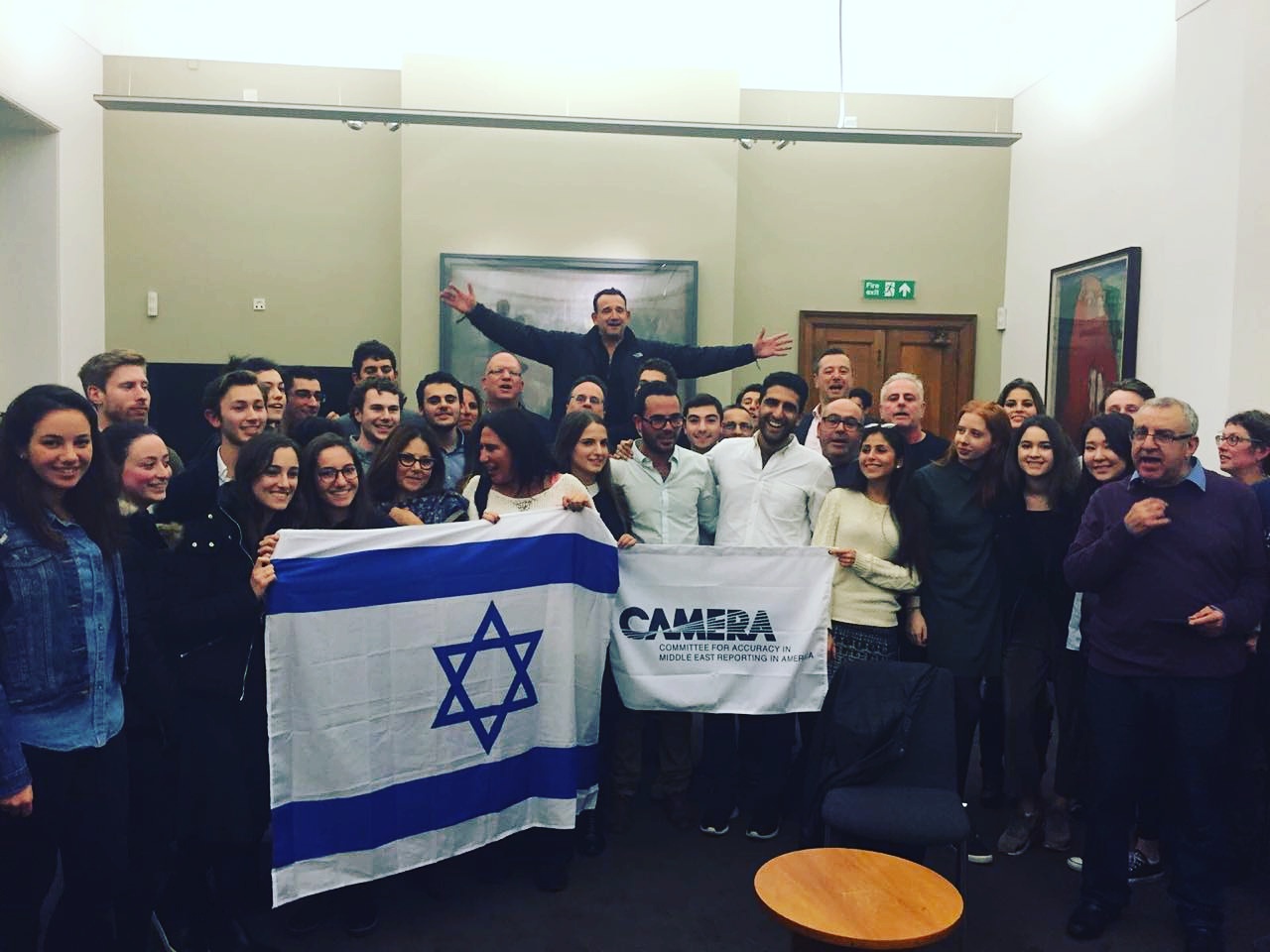Last week, Professors Cary Nelson and David Greenberg wrote in the Washington Post of the latest tactic of the BDS movement: anti-normalization.
Anti-normalization, under the guise of rejecting any contacts between Israelis and Palestinians that “treat both parties as having legitimate grievances and aspirations,” includes shouting down pro-Israel speakers, and when possible, preventing them from even appearing.
Nelson and Greenberg explain,
As anti-normalization spread as a tactic, it acquired a higher status. Advocates of BDS – the campaign to boycott, divest from and sanction Israel – began to grant this ‘principle’ a quasi-theological character, lending its application to campus events an air of moral urgency and ethical superiority. By last year, BDS supporters had a transcendent reason to voice their contempt for academic freedom when they refused to participate in ‘normalizing’ dialogue about the Israeli-Palestinian conflict and to block campus access to speakers deemed sympathetic to Israel.
The Post op-ed is extremely informative and provides a deep insight into what is happening on our campuses. It describes several recent, disturbing incidents in which speakers have been disrupted. One BDS leader who disrupted a recent CAMERA event at University College London admitted, moreover, that his true goal was to prevent future pro-Israel speakers from coming to that campus.

What Nelson and Greenberg omit, however, is an analysis of why anti-normalization has become so important to BDS. Why does this movement work so hard to prevent its opponents from simply being heard?
There is only one conclusion that can be drawn from these BDS actions. Those setting the BDS agenda understand that the only way they win the argument is when the pro-Israel side does not have an opportunity to present its case.
Kasim Hafeez, for example, says he was “the anti-Semitic, and anti-Israel activist” on his campus, until he read Alan Dershowitz’s The Case for Israel. Reading that book, he has said, completely changed his view. Interfaith activist Nadiya Al-Noor has written that simply learning about Israel has changed her from a person who believed that “Israel was slaughtering children left and right, Israel had no right to exist,” into a Zionist. And last year, Dershowitz won a debate against a BDS supporter at the Oxford Student Union. As Yair Rosenberg observed shortly afterwards, that was “a surprising outcome given the general hostility towards the Jewish state on European university campuses.”
These examples illustrate why the protesters at the UCL event said, on video, that they “don’t have dialogue with Zionists.”
Another variant on the strategy of shutting out pro-Israel voices is scheduling BDS votes on or right before Shabbat or Jewish holidays, so that many Jews can’t participate at all. Ira Stoll recently wrote about this tactic,
“It’s not a coincidence. It’s not an accident,” the executive director of the Israel on Campus Coalition, Jacob Baime, told The Algemeiner. He said he sees about one example every month of anti-Israel actions on campus timed to the Sabbath or Jewish holidays. “It is a fairly common tactic,” Baime said. “Israel’s detractors have an interest in shutting out Jewish voices.””
The underlying rationale is the same: in order to succeed, BDS must be able to present its arguments unopposed. When Israel’s supporters have equal time to be heard, when we make our case assertively and cogently, those without preconceived notions come out on our side – and in some cases, even those with preconceived notions will change their minds. To preempt this, the new BDS tactic is to fight tooth and nail to prevent us from making that case. This is why the fight for free speech on college campuses is more crucial than ever.
Contributed by Karen Bekker, Assistant Director of the International Letter Writing Group at CAMERA

